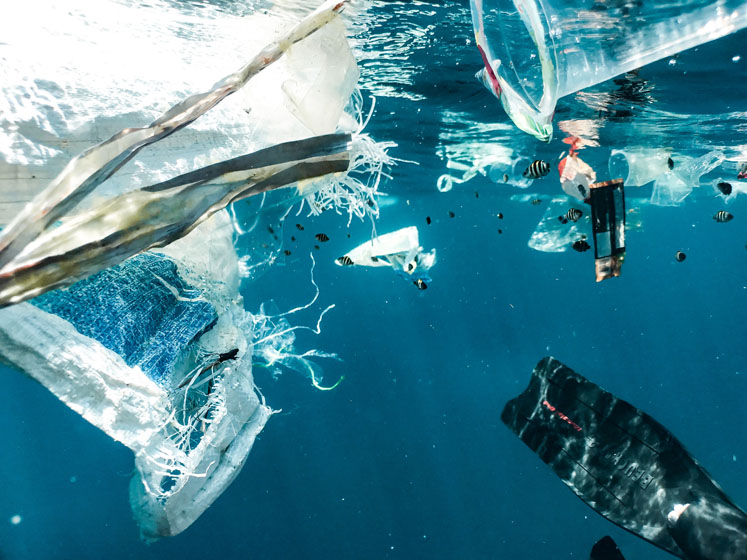The COVID-19 pandemic has been the biggest global crisis since World War Two. It has completely altered our lives and we have had to adapt to new ways of living and working. We had to put many of our plans on hold but, at the same time, have we also unintentionally put our initiatives to tackle plastic pollutions and reduce CO2 on the backburner too?
Although air pollution dropped in countries across the globe during the first lockdown because of travel restrictions and working from home, the amount of disposable plastic used in hospitals and other healthcare settings increased.1 But was this necessary to help save lives?
During the first COVID-19 peak, the demand for personal protective equipment (PPE) rose to unprecedented levels. To maintain service delivery, protect and provide high-quality care to patients, the UK NHS had to increase its use of PPE exponentially.
Intravenous (IV) bags and ventilator machines utilised components made from single-use plastics, while healthcare workers dressed almost entirely in plastic from their gowns and masks to their gloves. Even the equipment they used— syringes, drips and examination tools — involved moulded or extruded plastic, which is incredibly important for infection control.
Since 2008, the NHS has been tracking and reporting on its carbon footprint but, in a recent document, the NHS stated that it’s all too aware of the impact that the pandemic and medical waste could have and may continue to have on the environment.2

Although the full impact of this is not yet fully known, the NHS is committed to reducing the environmental impact of PPE and working on making sustainability part of its plans. And there are others pledging their commitment to helping reduce the impact of PPE too.
In December 2020, a team of scientists, led by Swansea University, said it could help to find a solution for the pandemic’s medical waste. Rather than incinerating PPE, which produces climate-warming carbon, the team suggested that sunlight could break the items down into hydrogen.3
Then, in September of 2021, another organisation based in Wales, this time Cardiff, said it was working with several hospital trusts across the UK to melt down PPE.4 Thermal Compaction Group heats single-use masks, gowns and curtains to 300 °C, sterilising all pathogens, and is able to recycle 300,000 defective masks each month — which would have otherwise been incinerated or sent to landfill.
Large pharmaceutical companies are also stepping up their efforts to offset their carbon emissions. Before the pandemic, AstraZeneca had been recognised for its actions to reduce emissions, cut climate risks, develop the low-carbon economy and manage water resources sustainably.5 It also announced that it would bring its decarbonisation plans forward by a decade, investing up to $1 billion to meet its existing science-based targets.
GlaxoSmithKline (GSK) is pledging to significantly reduce its impact on the environment by 2030. It aims to reduce waste from its supply chain by 10% and have zero operational waste, including eliminating single-use plastic.6
So, perhaps the increased use of plastic was an acceptable and temporary measure to help many of the health services around the world save millions of lives. It is how we, as large companies and individuals, respond to the increase in CO2 and plastic pollution caused by the pandemic that will really count in the long run.
References
- www.sciencedirect.com/science/article/pii/S0013935120310860.
- www.england.nhs.uk/greenernhs/wp-content/uploads/sites/51/2020/10/delivering-a-net-zero-national-health-service.pdf.
- www.bbc.co.uk/news/uk-wales-55396511.
- www.bbc.co.uk/news/uk-wales-57687261.
- www.csrwire.com/press_releases/44150-six-pharmaceutical-firms-taking-a-lead-in-sustainability.
- www.gsk.com/en-gb/responsibility/environment/.
